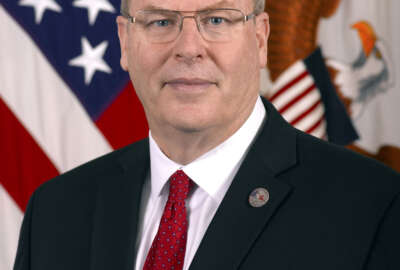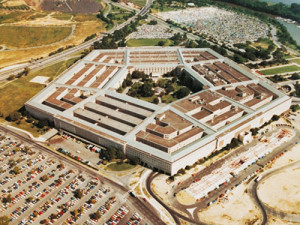
DIUx gets leadership overhaul from Carter
Defense Secretary Ash Carter is revamping the Defense Innovation Unit Experiment before it even turns a year old.
Just eight months into the creation of the Defense Department’s Silicon Valley outreach office, Secretary Ash Carter is replacing the leadership and declaring a new iteration of the program.
Carter announced May 11 a major overhaul of his futuristic brainchild, Defense Innovation Unit Experimental, which is aimed at strengthening relationships with top tech companies, small businesses and other traditionally non-defense firms.
DIUx 2.0 will open a second, east coast office in Boston and plans on directing $30 million in new funding to companies with emerging commercially-based technologies that meet military needs.
The change comes as DIUx drew scrutiny from the House Armed Services Committee in its version of the defense authorization bill not putting enough planning into the office.
The change in the office is “taking a page straight from the Silicon Valley playbook” by iterating rapidly to make DIUx better, Carter said during a speech at DIUx headquarters in Mountain View, California.
From now on DIUx will report directly to Carter, something he said shows how important the office is to DoD.
“This is to signify the importance I attach to this mission and also the importance of speedy decision making,” Carter said. “I will work in close coordination with our Deputy Secretary of Defense, Bob Work, and the Vice Chairman of the Joint Chiefs, Air Force General Paul Selva. And to maximize the rapid uptake of promising technology, I’m directing DIUx to work closely with DoD’s rapid acquisition cells and R&D community.”
DIUx’s new leadership will take the form of a partnership-style leadership structure full of technologists, investors and business executives.
Just as Defense Secretary Robert McNamara surrounded himself with “whiz kid” strategists from Ivy League colleges to change the culture in the department, Carter is injecting 21st century whizzes into DIUx.
By reporting directly to Carter, the organization will no longer fall under the jurisdiction of Frank Kendall, DoD’s undersecretary of acquisition, technology and logistics.
Raj Shah, co-founder of cybersecurity company Morta Security, will be managing partner of DIUx. He will be joined by Isaac Taylor, former head of operations at Google’s research and development facility, along with other tech gurus.
“I’ve personally experienced how difficult it can be for a startup, who wants to make a contribution to our national security, but simply can’t afford to do business on the timelines that it takes to work with the Pentagon,” Shah said.
Now former head of DIUx George Duchak will be moving to other parts of the DoD’s research and development arm, Carter said.
DIUx received criticisms from both industry and Congress.
The House version of the 2017 defense authorization bill states the House Armed Services Committee is concerned by DoD’s “pinpoint focus” on one geographic region and the dedication of significant funding at such a nascent period of the development of the organization.
“The committee is concerned that outreach is proceeding without sufficient attention being paid to breaking down the barriers that have traditionally prevented nontraditional contractors from supporting defense needs, like lengthy contracting processes and the inability to transition technologies,” the bill states.
It goes on to say DIUx may have insufficient oversight and coordination with laboratories and engineering centers.
Janice Haith, Navy’s deputy chief information officer speaking during an AFCEA event in Arlington, Virginia said she is seeing some value, but hasn’t seen the full range of benefits from DIUx.
Army Deputy CIO agreed saying the potential is there, but it still has work to do.
Still, DoD officials contend the program is progressing.
In an interview with Federal News Radio in February Assistant Secretary of Defense for Research and Engineering Stephen Welby said DIUx was working closely with companies to show Silicon Valley that the government isn’t a quagmire of acquisition rules and regulations.
DIUx has been holding multiple events to reach out to industry.
In February, more than 200 companies came to a town hall to discuss intellectual property rights and the government acquisition system.
On May 10 Kendall said DIUx has been a success, but needed some adjustments.
Copyright © 2025 Federal News Network. All rights reserved. This website is not intended for users located within the European Economic Area.
Scott Maucione is a defense reporter for Federal News Network and reports on human capital, workforce and the Defense Department at-large.
Follow @smaucioneWFED




